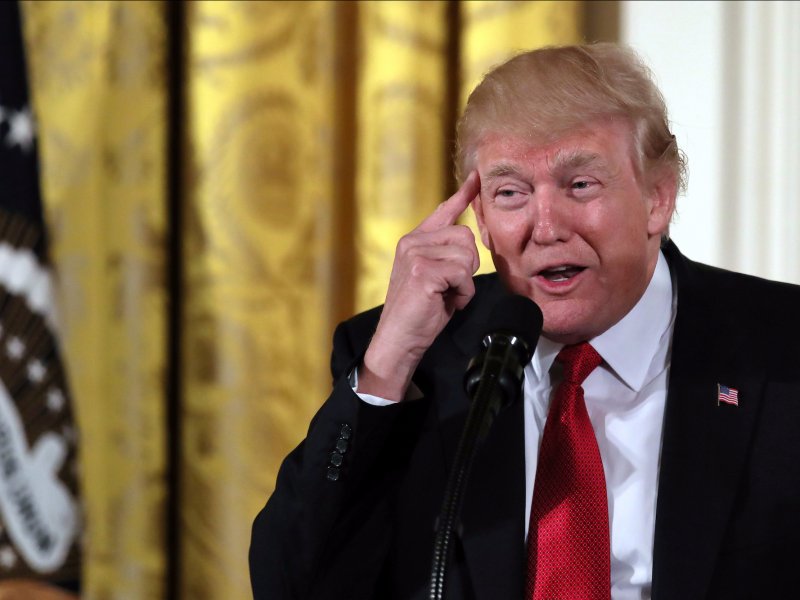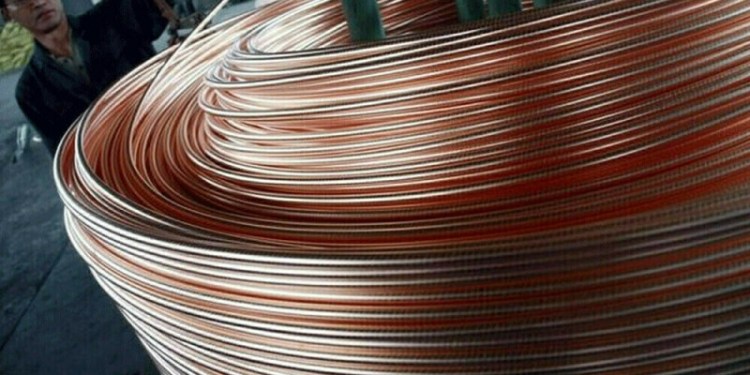 © Carlos Barria/Reuters
© Carlos Barria/Reuters- Federal Reserve Chairman Jerome Powell, Donald Trump’s own pick to run the central bank, has spoken out against the possibility of new US tariffs on imported goods.
- “The tariff approach is not the best approach,” Powell said in testimony. “The best approach is to deal directly with the people who are affected rather than falling back on tariffs.”
- New York Fed President William Dudley and Minneapolis Fed President Neel Kashkari have also warned about the risks of rising protectionist sentiment.
Federal Reserve officials prefer to stick to their mettle — interest rate policy and bank regulation — when making public pronouncements.
So it’s especially unusual, and telling of policymakers’ level of concern, that some top central-bank officials, including President Donald Trump’s pick for Fed chairman, Jerome Powell, have warned against the dangers of a trade war after Trump said sharp tariff increases in steel and aluminum were forthcoming.
Asked about the issue during his first testimony as Fed chairman last week, Powell said trade is a “net positive” for the American economy.
“The tariff approach is not the best approach,” Powell said specifically. “The best approach is to deal directly with the people who are affected rather than falling back on tariffs.”
Stocks fell sharply after Trump’s announcement and have continued to wobble as uncertainty rises amid threats of retaliation from major trading partners like Canada and the European Union.
William Dudley, the New York Fed’s powerful outgoing president, was even more categorical in his condemnation of trade protection measures during a speech in Brazil.
“If support for liberalized trade and an integrated global economy were to suffer a significant setback, the consequence could be slower economic growth and lower living standards around the world,” Dudley said.
Neel Kashkari, president of the Minneapolis Fed, told the Financial Times the rationale for protecting the steel industry did not hold water.
“If you raise steel tariffs, are the steel jobs in the US going to more than make up for the economic effect [on] everybody who is a steel consumer?” Kashkari asked. “If you look narrowly at that, the answer is going to be a resounding no.”
He added, “I am sympathetic to the desire for fair trade but I am nervous that there will be economic cost to the US economy in trying to show that the threat is credible.”
That was also the view expressed among market economists, who are hoping Trump will be talked off the edge and roll back some of his more extreme proposals — despite evidence to the contrary in his morning tweets.
“President Trump’s recent lurch toward protectionism is bad policy, bad for the US economy and bad for the global economy,” wrote Ward McCarthy, chief financial economist at Jefferies, in a research note to clients.
“With global growth and trade growing for the first time in years, and global business cycles synchronized for the first time in years, protectionism is a real threat to economic prosperity.”
Fusion Media or anyone involved with Fusion Media will not accept any liability for loss or damage as a result of reliance on the information including data, quotes, charts and buy/sell signals contained within this website. Please be fully informed regarding the risks and costs associated with trading the financial markets, it is one of the riskiest investment forms possible.
Source: Investing.com





























